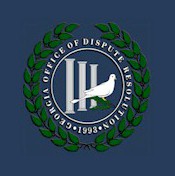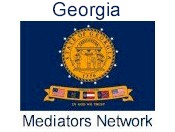| |
 |
From the Director:
Courts Must Provide Interpreters, But at What Cost?
As a
non-native speaker and writer of English, I have always been
interested in how new U.S. residents with limited English utilize
public services – like the courts – that are legally available to
them. My hunch is that many simply don’t because it’s too difficult,
and that’s a shame. And when they try to access them, it can be
frustrating for the people and for the institutions. So just as folks
should work to improve their English, it makes practical sense for
public institutions to try meet them halfway until they do.
To that
end, the Georgia Supreme Court has long had a rule for the
“Use of
Interpreters for Non-English Speaking Persons.” A few weeks ago, the
court issued a revised rule, which now requires that Georgia courts
provide interpreters to all Limited English Proficiency (LEP) persons
at no cost in all criminal and civil proceedings, in adult courts and
in juvenile courts. These revisions bring Georgia courts in
compliance with U.S. Department of Justice standards, which require
meaningful access to justice for all LEP persons, as outlined in Title
VI of the Civil Rights Act of 1964 and Executive Order 13166. Read
the revised Supreme Court rule here.
According to the Georgia Commission on Interpreters, the revised rule
applies to all court managed functions, including alternative dispute
resolution programs. Understandably, Georgia’s judicial leaders are
worried that the federal mandate will put pressure on court budgets
that are already strained to the breaking point. These same budget pressures are going to hit local ADR
programs, which heavily if not entirely depend on their local ADR
funds to operate. Unfortunately, there seems to be no easy solution
to this issue. But you may find that your local court program may
have to cut services in order to handle the unanticipated and unknown
costs of providing interpreter services. While we wait to see how
this progresses, here’s some information you may find useful.
Practice Tips for Mediators and Arbitrators:
-- If
you determine that a party needs an interpreter, notify your court
program director;
--
Whenever possible, use a professional interpreter who is certified
through the Commission on Interpreters. Use of family members and
friends as interpreters is not ideal, as they are reasonably perceived
as not being neutral, and they are not professionally trained.
Likewise, it is not ideal for neutrals to serve as both mediator or
arbitrator and interpreter.
If you
have an interpreter in your mediation or arbitration:
--
Notify parties and counsel that an interpreter will be present;
--
Check if the interpreter has any ties to the other participants that
may reflect on his or her ability to interpret;
-- Have
the interpreter sign the guidelines or agreement to mediate so he or
she is bound by the confidentiality rules;
--
Discuss with the interpreter prior to the mediation or arbitration how
you and the participants can best help him or her interpret;
-- Ask
about the interpreter’s familiarity with mediation and arbitration
terminology and process, and offer him or her a quick primer if you
have time;
--
Confirm that the interpreter understands his or her role in the
process -- that of a neutral conveyor of information. All
professional interpreters know that they are not advisors or
substitutes for legal counsel, but are like microphones – tools to
enhance communication in the process.
Resources:
For persons with Limited English Proficiency who need general
information on the courts:
-- The
“Guide to Georgia Courts” brochure is newly available in
Spanish and Chinese;
-- The
“Basic Rules of Court Conduct” brochure is available in
Spanish, Arabic, Chinese, French, Korean, Somali and Vietnamese
(scroll to bottom of linked page);
--
Statewide domestic relations forms – including the financial affidavit
and parenting plan form – are available in
Spanish.
For
more information, contact the
Georgia Commission on Interpreters.
Shinji
Morokuma, Director, GODR
gaodr@godr.org
|
|
 |
Reminder:
Send in Your New Background Check Authorization Form
Just a
reminder that we need a new background check authorization form from
all registered neutrals.
GODR has begun using this
new “permanent” form through which you can authorize us to check your
background whenever necessary, without your having to authorize it by
signature each time. Once we have your permanent authorization,
you will never have to submit another background check authorization
again for as long as your registration status is active or
inactive.
This new form simplifies the registration renewal process and
eliminates several trees’ worth of paperwork.
The form is posted on our website under
“Forms and Applications.” If
you haven’t done so already, please fill it out, print it, sign it,
and send it to us via e-mail, fax, post or express delivery as soon as
possible so we can have it on file well before the 2011 renewal season
starts November 1. We recommend that you always send important
documents to GODR via a service that offers tracking and delivery
confirmation.
|
|
 |
Quick Question and Answer
Q:
How can a registered mediator gain more
exposure to the Commission on Dispute Resolution and GODR?
A:
The best way to learn more about the Commission and the GODR is to
attend a Commission meeting. That’s where you will hear updates of
GODR activities and hear discussion on important policy matters that
affect the statewide court-connected ADR system. You can even address
the Commission on the record. GODR staff attend, of course, as do
many court program directors.
Dates of upcoming Commission meetings are always posted on our
website, under the “About the Commission” link. Meetings are held
every other month except during the summer. The next meeting is
scheduled for Thursday, September 1, at 2 p.m., in Meeting Room 1, at
the State Bar of Georgia Conference Center in downtown Atlanta.
Meetings generally last an hour.
Also, the Commission has several committees, and some of those
committees seek practicing neutrals as advisors. If you are available
to serve as an advisor, contact GODR with your areas of interest and
expertise, and we’ll keep you in mind when there’s a need.
Lastly, reading this e-newsletter every month is another way to keep
in touch with what’s going with the Commission, GODR, and the state
court-connected ADR system. But since you’re reading this, you
already knew that.
|
|
 |
Did You Know ...
That GODR can help you if you are subpoenaed to testify about a
court-connected mediation you conducted? We can. We have helped
numerous mediators over the years quash subpoenas that seek to compel
them to breach their ethical duty of confidentiality. Our office has
available a “Quash Kit” – samples of motions to quash, court orders,
and other documents that mediators might need to inform judges and
attorneys why mediators should not testify or submit affidavits about
their mediations. Occasionally, we have even been able to find local
counsel who are willing to represent mediators before the court on
their motions to quash.
Practice Tip: Know your ethical duty of confidentiality and the
exceptions to confidentiality in court-connected cases; they can be
found in the
Supreme Court ADR Rules, Section VII, and in Appendix C. If you
are subpoenaed to testify about a mediation you conducted, notify your
court program director immediately. Your program director may be able
to talk with the judge and attorneys in your case and convince them to
withdraw the subpoena. If your program director is unsuccessful, then
you or the director should contact our office right away for further
advice and support.
|
|
 |
CaseWatch for Mediators:
Custody Disputes Present Pitfalls, Opportunities
All parents in divorce cases claim to have their children’s best
interests at heart, right? Of course, the question of which parent’s
interests are truly best is one that they can argue about for years
and years. In this month’s CaseWatch for Mediators, Mary Ellen Cates,
divorce attorney and registered mediator, offers a practice tip for
divorce mediators and introduces a new twist on custody arrangements.
|
|
 |
CaseWatch for
Arbitrators:
Failure-to-Disclose Challenges to Arbitration Awards
Neutrality and impartiality are critical qualities for arbitrators as
they are for mediators. An arbitrator’s credibility – or lack thereof
– can have profound effects on the arbitration process. That is why
all ethical arbitrators will disclose any potential conflicts of
interest or sources of bias that may exist between them and the
parties and their attorneys. This month, John Allgood, Esq., veteran
attorney, registered mediator and arbitrator, showcases two cases that
challenged arbitration awards on the grounds that the arbitrator
failed to disclose such information – with two very different results.
|
|
 |
Marketing Tip: T
Minus 30 and Counting
How has your summer been? Well, we hope. This is a good time to give
your business marketing efforts and check up, and to see how well your
business is doing and how you can do better. In this month’s
Marketing Tip column, our marketing maven and registered mediator
Michele Gibson reviews the great tips she’s shared with you over the
past year and reminds you that you can’t take a (long) vacation from
marketing your business if you expect success.
|
|
 |
Commission Meeting
in September
The next meeting of the Commission on Dispute Resolution is scheduled
for Thursday, September 1, 2011, at 2 pm, in Meeting Room 1 of the
State Bar of Georgia Conference Center, 104 Marietta St. NW,
Atlanta, GA 30303. Meetings are open to the public. Upcoming
Commission meetings, agendas and minutes are always posted on our
website. |
|
 |
Benefits: Exclusive
Insurance Products for Registered Neutrals
Georgia-registered neutrals are entitled to participate in several
insurance and retirement programs that have been designed specifically
for them. If you need insurance, are planning for retirement, talk to
the experts at
BPC Financial. They manage our new exclusive insurance and
retirement program, and they can advise you on your insurance needs
and help you find good deals on major medical insurance, healthcare
savings accounts, dental and vision insurance, term life insurance and
more. Registered neutrals receive the benefits of underwriting
concessions, enhanced benefits, or reduced premiums and fees compared
to shopping for similar products on the open market. Check out the
GODR Registered Neutrals Insurance and Retirement Programs website.
We’ve also arranged for special benefits on professional liability
insurance for registered mediators and arbitrators with
Complete Equity Markets. See our
website for more information or contact
Betsy Thomas, 800-323-6234, ext. 472, and tell her you’re a
Georgia registered neutral! |
|
 |
Save the Date: 2011 ADR
Institute
The 18th Annual ADR Institute and 2011 Neutrals’ Conference will be
held Friday, December 9, 2011, at the State Bar of Georgia Conference
Center, 104 Marietta St. NW, Atlanta. We set an attendance record
last year, and based on the speakers we are lining up, we think this
year’s conference will be even more popular. At least 6 hours of
neutral continuing education and 6 hours of CLE (including 1 Ethics
Hour) will be available. More details and conference registration
will be available through
www.iclega.org in November. Stay tuned! |
|


|
Publicly Available
Resources for Georgia ADR Professionals
We encourage you to visit the
blog
created by Georgia State University law professor Doug Yarn and GSU
law student Alex Salzillo
to inform and encourage
discussion. Please add it to your reading list, send the link to your
colleagues, and visit often. The address:
http://georgiaadr.wordpress.com/
And
don’t forget the
Georgia Mediators Network, a great Facebook resource for the
latest mediation news and articles from around the world. The page
has been visited tens of thousands of times in just the few short
months it’s been around. Use the information there to pump your own
professional web pages and your expertise. The Georgia Mediators
Network is the brainchild of registered mediator Michele Gibson, our
marketing columnist and newsletter producer. |
|
 |
Upcoming CE and
Training Offerings
Don’t wait until the 2012 renewal season to get your CEs. Check
frequently at our
website for the latest CE and training offerings. Remember, any
ADR-related training you take counts as CE as long as you took it
since your last renewal or your initial registration, whichever comes
later. Lawyers, any CLE you took during that same time period counts
as CE. Likewise, judges and CJE. Accountants and other professionals
with CE requirements, same thing.
And remember, we recently posted two videos on our website that
registered neutrals can watch for free to earn CE credit. Each video
is one-hour long. Neutrals are free to watch the videos as many times
as they wish, but we can only award 1 CE hour credit for each video
once a renewal season. Please note the date you finished viewing each
video so you can report it on your renewal form. Remember, registered
neutrals are required to take at least 3 hours of CE each year in
order to renew their registrations. Look for the link,
“Continuing Education Videos,” in the main menu of our website.
For more information on what qualifies for CE, please see the
“Help! I Need CE!” link on our website.
|
|
 |
Be Neutral
Back Issues Available Online
Be
Neutral
is sent monthly to all registered neutrals, generally at the beginning
of the month. If you missed an issue, our back issues are posted at
the bottom right of our website, under
“Newsletter Archive.” Please take a look. If you know people who
want Be Neutral, please direct them to our subscription box at
the bottom right of our
website, where they just need to enter their e-mail addresses.
Please forward this newsletter to anyone who might be interested in
ADR in Georgia courts. Forward it just as you would any other
e-mail. If folks who are not registered neutrals want to receive the
newsletter free of charge, they can submit their e-mail addresses in
the subscription box at the bottom right of our
website. And sending us feedback is easy – just reply to this
e-mail as you would any other e-mail. We want to hear from you!
|
|
|
Spread the Word
Please forward this newsletter to anyone who might be interested in ADR in Georgia courts. Forward it just as you would any other e-mail.
If folks who are not registered neutrals want to receive the
newsletter free of charge, they can use the subscription box at below this
text or submit their e-mail addresses in the
subscription box at the bottom right of the home page of our
website. And sending us feedback is easy – just reply to this
e-mail as you would any other e-mail. We want to hear from you !
|
|

|
|
|